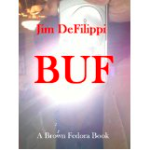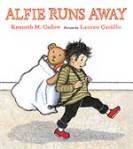According to Jay Parini, if you’re Herman Melville, you go with it. Parini’s latest book: The Passages of H.M.: A Novel Of Herman Melville, delves into (and perhaps embellishes, just a tad) the life of the famous creator of Ahab and Ishmael.
I’ve met Jay Parini on a number of occasions. In September of this year, upon shaking his hand yet again, I asked if he might like to be interviewed for my radio show and podcast, Write The Book. He was enthusiastic about the idea, especially as his new Melville novel was due out in November. When I wrote to remind him of our appointment, he called and left a voice mail, asking to push it back by half an hour. Two things struck me in listening to this message. First, Jay Parini has a great voice. A radio voice, in fact. He may look the part of the quiet academic—with his round glasses and oft-contemplative expression—but he has a deep, resonant voice that frequently sounds like the preamble to laughter. The other thing I noticed when he called was that he pronounced my name correctly. It’s not an easy name, with the silent “gh” at the end, and most people go the safe-but-incorrect Sheila route. (Some women who spell their names as I do are called “Sheila.” But I’m SHAY-lah.) And while I don’t mind my name being mispronounced, I’m always impressed when people have listened closely enough to get it right the next time they speak to me. Parini not only got it right, but said it three times in a row on the phone message, playing with the word, appreciating his having gotten it right. “Shelagh, Shelagh, Shelagh,” he said happily, then went on to ask about rescheduling. It brightened my day, his optimism—and besides, we all like hearing other people say our names—and made me look forward to spending an hour in his company.
I interviewed Jay Parini on a warm, balmy Monday in late October. Driving south on Vermont back roads, enjoying the late autumn confetti blowing across my windshield, I suffered only mild apprehension about not having finished the book. With ten pages left to go, on my way to clip my mic to the collar of an impressive author who’s studied with the greats (Alastair Reid, Jorge Luis Borges, Pablo Neruda) and written about the greats (William Faulkner, Robert Frost, Leo Tolstoy), I was happy that he’d pushed our talk back, putting me ahead of schedule. Rounding a bend some two miles from Parini’s house, I found a perfect spot to pull over and finish the last pages of the proof.
In my role as interviewer, I feel vaguely uncomfortable to actually “review” a book written by one of my guests. It smacks of a certain conflict of interest. (I’m always stunned, for example, when Terry Gross speaks with the director of some new television show, and follows the discussion with a searing review by David Bianculli. Isn’t this kind of a setup? But her guests have managed to get a spot on Fresh Air, so maybe I should worry less about them.) One of many interesting tidbits about Melville’s era that emerged when I spoke to Parini was that H.M. greatly resented the fact that his close friend Nathanial Hawthorne, to whom he’d dedicated Moby Dick, never wrote a review of that book. Had he done so, perhaps the novel would have been met with more than a mild, baffled reaction from Melville’s then-sparse readership. I wondered aloud during our talk if maybe a review by Hawthorne wouldn’t have been a conflict of interest. But Parini said no; in the nineteenth century, reviewers were never expected to be objective, and Hawthorne could well have done this for his friend, despite the dedication.
The Passages of H.M. offers a great many of these interesting tidbits about Melville’s life and times. The novel is not linear—not a chronological rundown from birth to death. It’s composed, instead, of somewhat parallel narratives offered by Melville himself and his wife, Lizzie. The book opens from her perspective, recounting what it was like to live with H.M. in his mid-forties, when he’d devolved from a vibrant, curious adventurer to a bitter alcoholic: in debt, sullen, withdrawn, and occasionally violent. For many years, after the public’s underwhelming reaction to Moby Dick, Melville stopped writing altogether with the exception of sporadic poems and false starts. Eventually, Parini’s narrative backs up and offers thrilling and convincing stories of Melville’s wanderlust and adventures, his life aboard a series of ships, his courtship to Lizzie, and his ultimate return to writing in later years, which culminated in the posthumous publication of Billy Budd.
I feel a need now to briefly offer an explanation about my read of Parini’s book, though it will neatly fit this essay into the realm of review.* The Passages of H.M. is both a fascinating biographical study and an entertaining novel, filled out by Parini’s imagination. I didn’t pull my car over to the finish the book, which I’d have done in any case; I pulled over to finish it on time.
On closing the back cover and checking my watch, I continued south and found my way to Parini’s home. In the kitchen, he introduced me to his wife, the psychologist Devon Jersild, author of Happy Hours: Alcohol in a Woman’s Life. After a brief exchange of pleasantries, Parini poured us each a cup of tea and he and I made our way upstairs to his study, a spacious, contemporary nook within his lovely, old home (can nooks be spacious?), which features two desks—one with computer, one without—and a sitting area. We sat, appropriately, in the sitting area.
It didn’t take long for bisexual cannibals to come into our conversation. Melville did, in fact, jump ship in the Marquesas to get off a boat called The Acushnet and away from it’s contentious captain, Valentine Pease (who would become inspiration for Melville’s Ahab). H.M. and his friend Toby Greene fled inland, hoping to cross the island of Nuku Hiva, where the boat had laid anchor, and find another ship on which to serve until returning home. They were kidnapped by island natives, the Typee: known both for their lack of sexual restraint—a freedom H.M. had neither experienced nor witnessed before—and for their cannibalism. This chapter in H.M.’s life would lead him to write the early book that made him a household name in his time: Typee.
As Parini said with a smile during our interview, “How can you beat that? I mean, how many of us get kidnapped by bisexual cannibals? … It’s rare.”
He went on to talk about how fascinating he’d found Melville’s life—the extremes between such adventure, and the three-decades when he’d found it impossible to write.
He wandered the streets of Manhattan like a ghost, wearing these dark glasses, cape on, big hat. Walking with his walking stick.
I was amazed by the early years of wandering in the islands and having all these adventures. I was interested in a man with such a robust energy and intelligence, suddenly just drying up like this, and then re-emerging with Billy Budd at the very end. … And I was really interested in the whole business of Melville trying to make a go of it as a writer in the 19th century, when it was no easy feat. It’s no easy feat now, but it was no easy feat then, either.
For my part, having read the book to prepare for the interview, not necessarily because I’ve given much thought to Melville since the eleventh grade, I’m happy to have experienced a glimpse into this fascinating life. When I was young, Melville seemed to have lived too long ago to feel real. But when we’re young, we’re immortal, and often can’t even be touched by our parents’ generation. Also, my experience of Moby Dick was muddied by images of Gregory Peck, who’d played Atticus Finch as well.
Melville published Moby Dick in 1851. He and Lizzie lived in the shadow of Mount Greylock in the Berkshires. At one point in The Passages of H.M., Parini writes of what it must have been like for Melville to go swimming in a rock pool with Nathanial Hawthorne, whereupon they both encouraged Oliver Wendell Holmes to join them, though in Parini’s imagined world, he would have declined. The narrative recreates these authors and this time so clearly that I can practically see them. 1851 is not so long ago, after all, and Melville feels very much alive in all of his moods and experiences within this novel.
The late-season wasp that bumped around Parini’s office as we talked neither stung anyone nor ended up an audible presence on the recording. And though I almost walked out of Parini’s house still holding my empty tea cup, I remembered at the last minute to return it to him. All in all, a success.
As I made my way north again, I pulled back into that same spot along the road to be sure the recorder had functioned. I’m prone to these last-minute bouts of terror, complete with visions of having to call authors and apologize for having just wasted an hour of their lives. An hour that they can NEVER GET BACK. But the recorder had worked, and the interview is safely installed online, having aired November 1st on WOMM-LP, “The Radiator,” in Burlington, VT.
After reading The Passages of H.M., and now knowing so much more about the challenges that Melville faced in becoming the icon that he is today in American literature, I feel a tiny bit proud to have participated in this way. Of course, like Terry Gross’ guests, Melville is already doing quite fine, thank you very much. And I probably don’t really need to worry about his legacy.
Jay Parini is a poet, novelist, biographer, and scholar. Among his seven novels are The Last Station (the movie version of which features Christopher Plummer, Helen Mirren, and Paul Giamatti), Benjamin’s Crossing, and The Apprentice Lover. He has written biographies of John Steinbeck, Robert Frost, and William Faulkner, as well as The Promised Land: Thirteen Books That Changed America and The Art of Teaching, the latter based on his columns in The Chronicle of Higher Education. In addition to teaching at Middlebury College and writing, he has appeared frequently on various programs for NPR, C-SPAN, and CBS. His latest book, The Passages of H.M., published by Doubleday, will be available on November 2nd, 2010.
Shelagh Shapiro is a graduate of Middlebury College, a school she could neither get into nor afford if she started college again today. One of her most prized possessions is an MFA in Writing from the Vermont College of Fine Arts. Her radio show Write The Book is heard weekly in Burlington; archived podcasts can be found on iTunes. A contributing editor for the Vermont journal Hunger Mountain, she has published stories in North Dakota Quarterly, Short Story, The Baltimore Review, Gulf Stream and other journals.
This essay also appears in the writing blog and online magazine Numéro Cinq.
* To read a couple of real reviews, check out:
http://www.tnr.com/book/review/stand-your-whale
http://www.bookpage.com/books-10013785-The-Passages-of-H.M.


